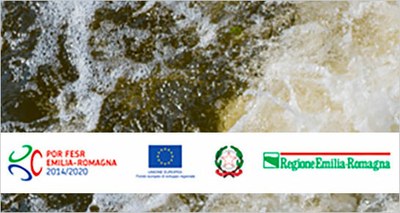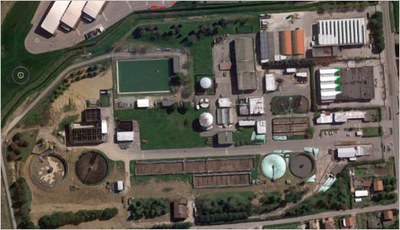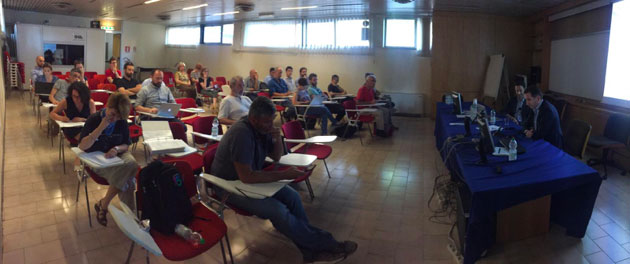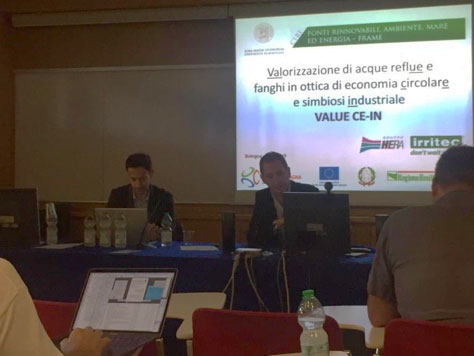Circular economy: Hi-tech solutions to purify municipal and industrial wastewater
19/9/2019
 Hi-tech solutions, innovative biotechnologies and new business models to enhance the entire purification chain of municipal and industrial wastewater, in line with the principles of the circular economy. This is the objective of the project Value CE-IN, coordinated by ENEA and funded by the Region Emila Romagna[1].
Hi-tech solutions, innovative biotechnologies and new business models to enhance the entire purification chain of municipal and industrial wastewater, in line with the principles of the circular economy. This is the objective of the project Value CE-IN, coordinated by ENEA and funded by the Region Emila Romagna[1].
Hi-tech solutions, innovative biotechnologies and new business models to enhance the entire purification chain of municipal and industrial wastewater, in line with the principles of the circular economy. This is the objective of the project Value CE-IN, coordinated by ENEA and funded by the Region Emila Romagna [1], in which participate the CNR, Bologna and Ferrara Universities, Milan Polytechnic and the companies Hera, Caviro Distilleries, Agrosistemi, Irritec, Alga & Zyme Factory and Promosagri.
 Images of the HERA Cesena purification plant, chosen as site / case study to implement the prototype system monitoring the quality of purified effluents and the real-time assessment of their best destiny, together with the development of smart irrigation systems of purified wastewater, tested in an experimental field.
Images of the HERA Cesena purification plant, chosen as site / case study to implement the prototype system monitoring the quality of purified effluents and the real-time assessment of their best destiny, together with the development of smart irrigation systems of purified wastewater, tested in an experimental field.
“Specifically, at the Hera plant in Cesena ENEA, jointly with the University of Bologna, will implement a prototype for monitoring the quality of wastewater treated for irrigation, made to flow through innovative precision irrigation systems towards an experimental pilot plot cultivated with vegetables of which the agronomic and environmental impacts will be assessed ”, Luigi Petta at ENEA explained. "In addition, in collaboration with the CNR, we will develop monitoring methods and technologies for the treatment of emerging contaminants, including microplastics, topics of growing interest to the scientific community and society, given their impacts on health and the environment, "Petta continued.
The project also aims at developing real scale smart systems with high TRL (Technology Readiness Level) to test and validate innovative biotechnologies for the reuse of secondary raw materials resulting from the treatment of waste water (algae, vegetable carbon or bio -char and bio-oils). The activities and results achieved will feed the database of the industrial symbiosis platform created by ENEA, to develop new business models for the closure of the cycles and the exchange of secondary raw materials with the purpose of creating new markets.
 |
 |
